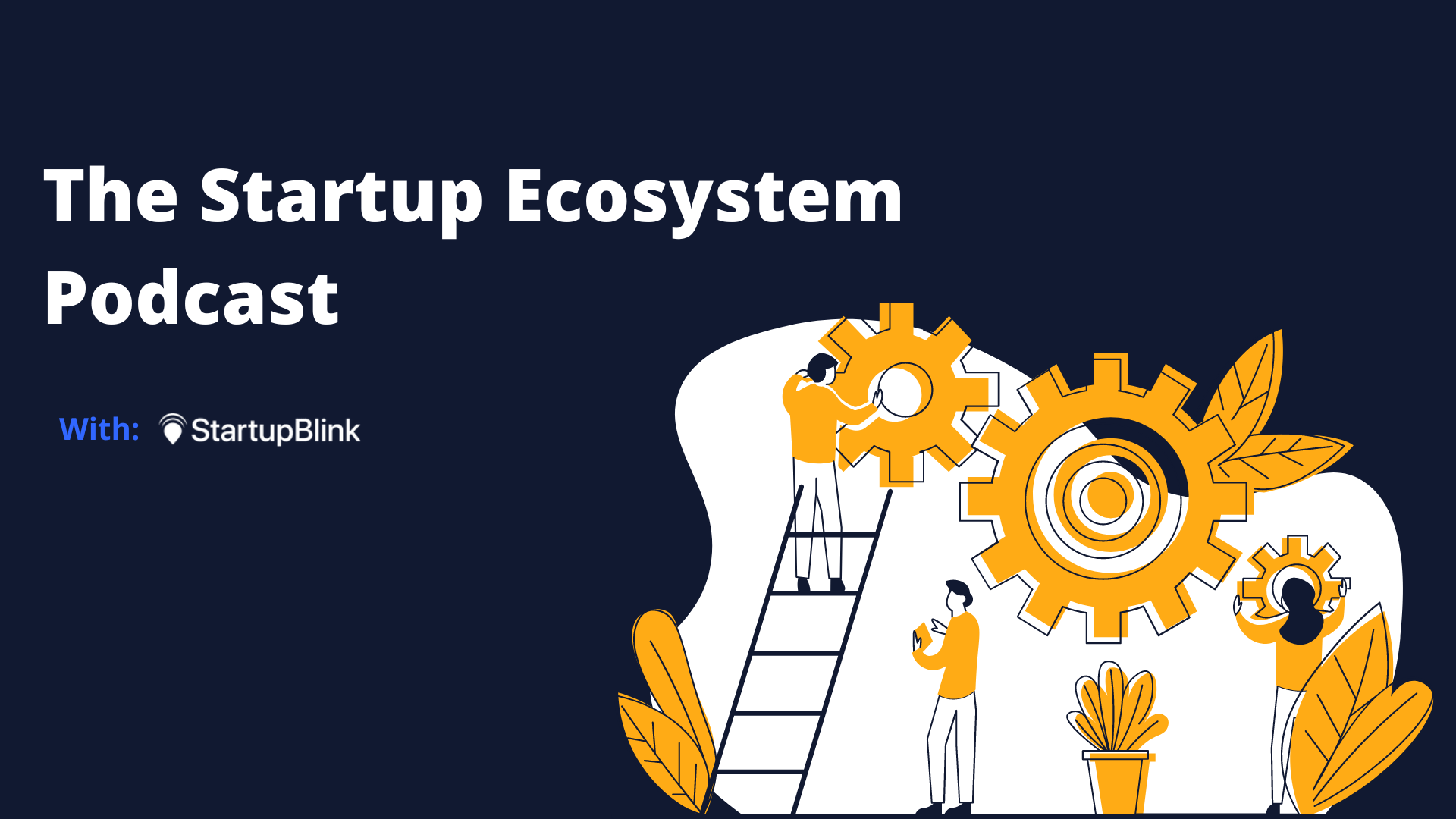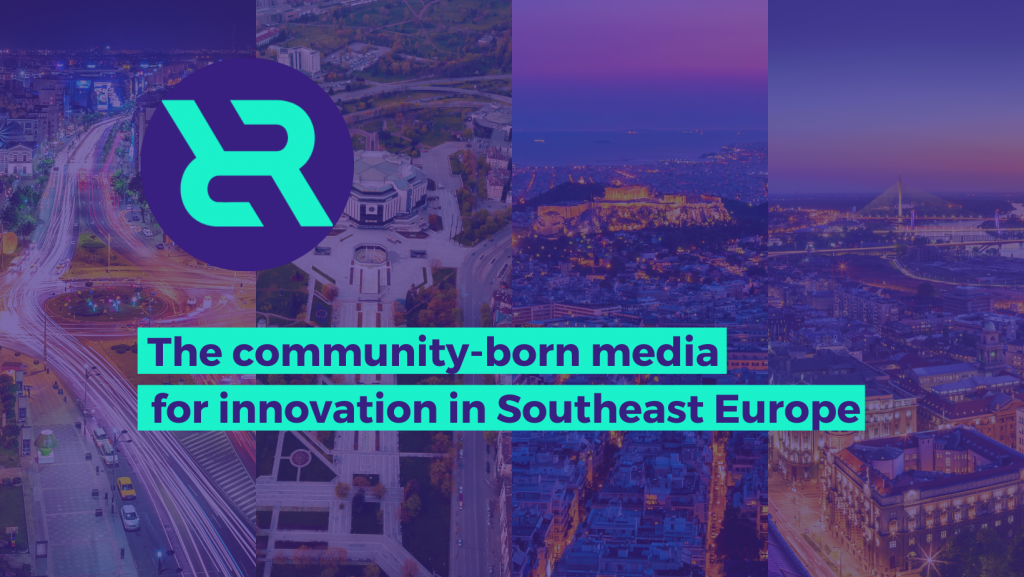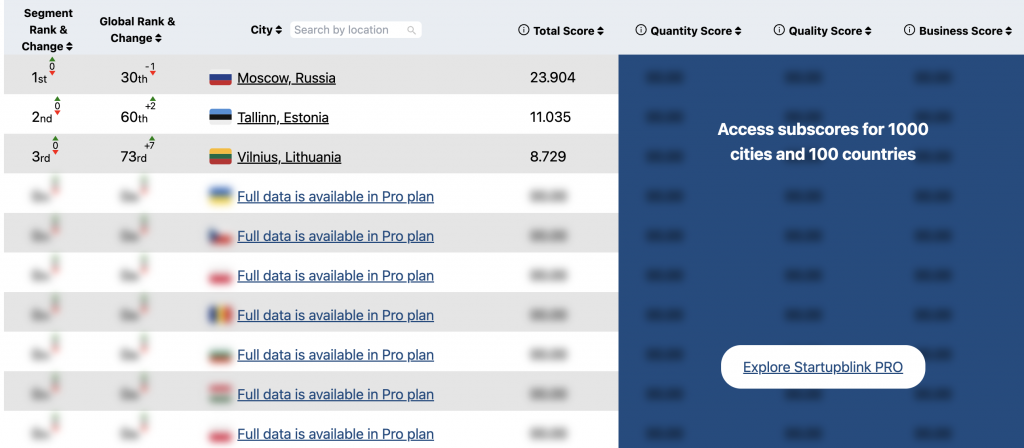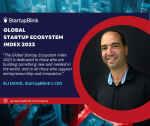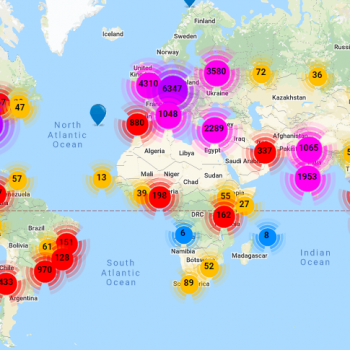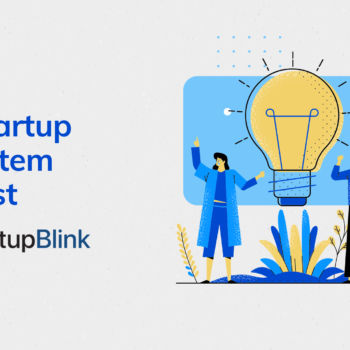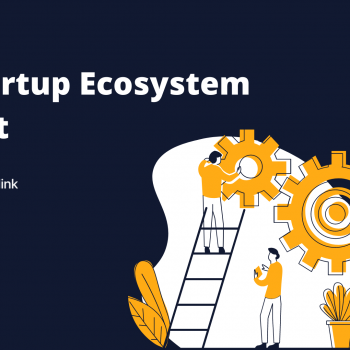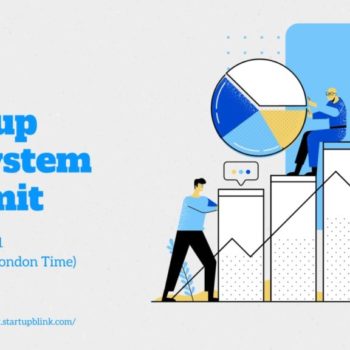In this new episode of the startup ecosystem podcast, we have the pleasure of featuring an interview with Irina Obushtarova, CEO of The Recursive, as she shares insights about the emerging startup ecosystems in Central and Eastern Europe (CEE). Tune in to uncover the progress made by CEE ecosystems and explore the exciting developments shaping the region’s entrepreneurial landscape.
The Recursive: A Catalyst for Entrepreneurship
Born out of the need to bring visibility to Central & Eastern Europe’s (CEE) vibrant startup ecosystem, The Recursive emerged as a catalyst for entrepreneurship. In a region often overlooked, it fills the void by providing English-language coverage of CEE’s tech and startup scene. By highlighting success stories, trends, and challenges, they connect CEE startups with global opportunities and drive recognition for the region’s innovation. The Recursive, founded by Irina Obushtarova and Etien Yovcheva, unlocks the untapped potential of CEE, paving the way for growth and collaboration in this dynamic entrepreneurial landscape.
Insights on Central & Eastern Europe's Startup Ecosystems:
Countries in the CEE region boast a highly educated workforce well-versed in technology and innovation. Additionally, the cost of operations in the region is relatively lower compared to Western Europe and the United States, allowing startups to stretch their budgets further and achieve cost efficiencies.
CEE governments have recognized the potential of the startup ecosystem and have implemented supportive policies and initiatives to foster growth. These policies include tax incentives, grants, and streamlined bureaucratic processes, making it easier for startups to establish and scale their businesses. One standout example is Estonia’s e-Residency program, which has gained international recognition. Through e-Residency, entrepreneurs from anywhere in the world can establish and manage their businesses in Estonia, enjoying the benefits of a trusted digital identity and access to a range of e-services.
The following table showcases the top-ranked CEE startup ecosystem in the StartupBlink Global Startup Ecosystem Index 2023:
View the rankings of the startup ecosystems from Central and Eastern Europe with StartupBlink Pro
Although the region is generally stable, cities are experiencing notable improvements in their positions. Here are a few more insights showcasing the momentum of Eastern Europe’s startup ecosystems:
- Moscow decreased by one spot to 30th, slowing its negative momentum from last year
- Tallinn achieved a new record in rank and entered the global top 60 after jumping two spots.
- Lithuania’s leading startup ecosystem, Vilnius, climbed 7 spots to 73rd globally, showcasing continued improvement over the last two years.
Insights from the Interview:
During our interview with Irina Obushtarova, CEO of The Recursive, several key insights emerged about the growing startup ecosystem in Central and Eastern Europe (CEE). Here are a few highlights from the interview
Growth and Expansion of Regional Ecosystems:
Irina observed the significant growth of regional ecosystems since the launch of The Recursive. Funding, international scaling of startups, the creation of unicorns, and the rise of coworking spaces, accelerators, and startup-related associations have contributed to this expansion.
Venture Capital Investment in CEE:
While venture capital investment in CEE is still lower compared to Western Europe, it has doubled compared to previous years. This indicates a growing trend and potential for further development in the region.
Interestingly, while the global trend shows a decrease in average funding per startup, CEE startups are experiencing an increase in average funding. This demonstrates the attractiveness of the region to investors. Furthermore, the CEE ecosystems have become much more mature compared to their state in 2021. This signifies progress and a conducive environment for startups to thrive.
Distribution of VC Funding in the Region:
Four countries in the CEE region—Estonia, Czech Republic, Croatia, and Poland—account for more than 70% of the total VC funding. However, other countries, such as Romania and Bulgaria, are also experiencing flourishing startup scenes.
Branding Value of Unicorns:
The emergence of unicorns in CEE ecosystems adds significant branding value. These unicorns, often the first in their respective countries, generate considerable news and attention, further boosting the region’s reputation. Hence it is no surprise to see increasing attention to mega-funds in the US, UK, and Western Europe. This increased interest brings further opportunities for startups in the region.
Collaboration and Consolidation:
Irina emphasized the need to view CEE ecosystems as an axis due to the geographic and cultural proximity of the countries. Startups can collaborate across cities, and venture capital is accessible throughout the region. The consolidation of markets is driven by the fast growth of startups, necessitating talent acquisition beyond local markets.
The growth of regional ecosystems, increased venture capital investment, and the maturation of CEE ecosystems signify a thriving environment for startups. With a focus on collaboration, consolidation, and attracting global investors, the future looks promising for CEE’s entrepreneurial landscape.
About Us:
StartupBlink is the world’s most comprehensive startup ecosystem map and research center, working with over 100 government entities worldwide. StartupBlink’s global startup ecosystem map has tens of thousands of registered startups, coworking spaces, and accelerators, creating a robust sample of innovation globally.
